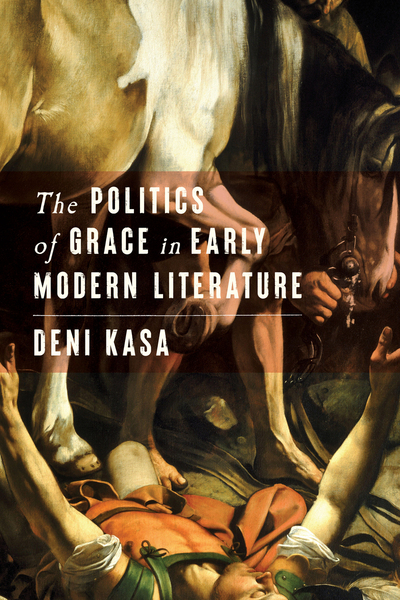
March 2024
250 pages.
$75.00
Hardcover ISBN: 9781503638266
Ebook ISBN: 9781503638310
This book tells the story of how early modern poets used the theological concept of grace to reimagine their political communities. The Protestant belief that salvation was due to sola gratia, or grace alone, was originally meant to inspire religious reform. But, as Deni Kasa shows, poets of the period used grace to interrogate the most important political problems of their time, from empire and gender to civil war and poetic authority. Kasa examines how four writers—John Milton, Edmund Spenser, Aemilia Lanyer, and Abraham Cowley—used the promise of grace to develop idealized imagined communities, and not always egalitarian ones. Kasa analyzes the uses of grace to make new space for individual and collective agency in the period, but also to validate domination and inequality, with poets and the educated elite inserted as mediators between the gift of grace and the rest of the people.
Offering a literary history of politics in a pre-secular age, Kasa shows that early modern poets mapped salvation onto the most important conflicts of their time in ways missed by literary critics and historians of political thought. Grace, Kasa demonstrates, was an important means of expression and a way to imagine impossible political ideals.
About the author
Deni Kasa is Associate Fellow of the Faculty of History at the University of Oxford.
"This book is provocative, original, and timely, and takes an acutely political perspective to understand the religion and literature of the seventeenth century. It is sure to play an important role in shaping the field of early modern literature."
—Brian Cummings, University of York
"Kasa reveals the dynamics at play in a Protestant literary culture in which ideas of empire, nation and individual agency were imagined anew. An important contribution to our understanding of political and religious thought as well as to literature studies."
—Sarah Mortimer, University of Oxford